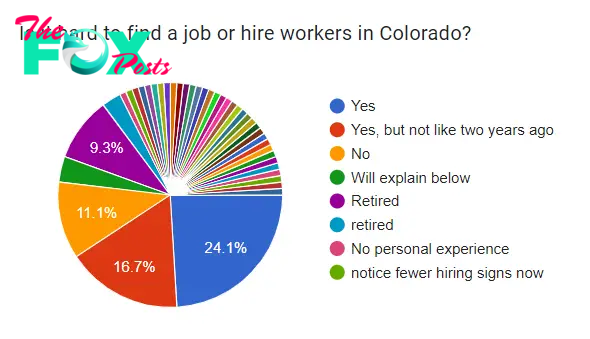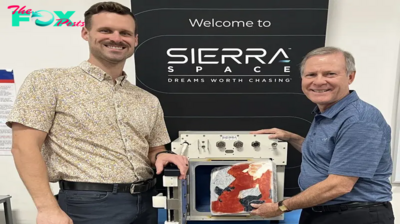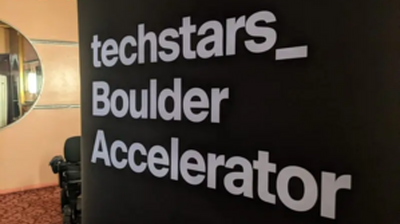Technology
What’s Working: Techstars Denver spotlights tech startups tackling workforce issues

Techstars is back! Not back in a local-headquarters kind of way, but the tech-business accelerator wrapped up its latest class of startups this week in Denver, the base for its new workforce development program.
Coincidentally, the city of Denver, where now New York-based Techstars opened a new office earlier this year, was named the nation’s hottest labor market by ADP Research Institute, an arm of payroll services giant ADP.
But even Gov. Jared Polis, a Techstars co-founder from back when it was based in Boulder instead of New York, acknowledged that “hot labor market” means different things to employers and workers.
“One of the biggest challenges employers and companies face is attracting and retaining the people they need to power their success and their growth,” said Polis, just before the dozen founders prepared to pitch their startups to investors Thursday night. “Denver, you might have seen it, we were rated one of the top job markets in the country. … That’s great, if you’re looking for jobs it is, of course. But for employers out there, that means it’s a little bit harder to find talent.”
The flip side? “For early stage companies,” he said, “it’s kind of exciting because you can recruit people to come here from other states knowing that if it doesn’t work out, they’re definitely going to find a job somewhere else.”
And as employers and employees have shared, the challenge of finding a good job — or good workers — continues, though today’s trends differ from the labor shortages a couple years ago. The startups that evening were definitely on to something and shared their vision for technology to help hire overlooked workers with disabilities, apps to train a fledgling workforce and programs to boost the underemployed who lack college degrees.

“Growing up, I was advised not to pursue STEM in high school because my textbooks would not be available in an accessible format,” said Kartik Sawhney, who ignored that advice as a blind person and went on to get a computer Science degree from Stanford University. “A decade later, 96% of the web continues to be inaccessible.”
He founded IncSkill, which helps employers improve their products and systems for customers and employees with disabilities. Its software scans websites and documents periodically to point out challenges and then provides specific fixes, like adding “a button on the page to increase line spaces and paragraph spaces.”
The team at Flexspeak mixed artificial intelligence with a device to help people with disabilities communicate. By pressing a few buttons to indicate the gist of what a user wants to say, AI translates it into an audible, eloquent sentence.
“To put this into numbers, we’re able to increase the average communication rate from an average of 10 to 40 words per minute,” said Alan Vu, Flexspeak’s CEO who is also a speech-language pathologist who stutters.
Sam Akhtar, a long-time teacher and educator, said she’d had it one day when 19 teachers called in sick or in need of a substitute. Even if there were enough available, the chaos of having to walk new substitutes through schedules, computers and the layout of the school and classrooms. She called it a broken system but mainly because substitutes don’t get the training they need.
So she started SubHub, an app to give those teachers and schools better training for subs, communication and support. Since getting a product out to market, SubHub attracted seven paying schools in 60 days and plans to expand into nine markets this school year.
Another company, Fathom, targets underemployed workers who struggle to find that better-paying job. It uses AI to provide personalized career navigation and support to the job seeker. It’s plugged into the nation’s official job centers to direct workers to specific occupations and training. It also relies on blockchain Technology to verify a worker’s experience and skills as a way for employers to find workers.
“We just completed our first federal contract with the Department of labor,” said Fathom’s co-founder JoAdel Adeola. “But wait, there’s more. Since joining Techstars in June, we’ve launched regional workforce pilots in five states covering 33 counties, 12 job centers and up to 4,200 job seekers.”
Several more startups shared their plans and you can watch their presentations here. And it looks like the workforce accelerator was such a success, Techstars is already planning to have another one next year starting in March. Applications are due by Nov. 20.
➔ The stats behind Denver’s top rank. ADP Research looked at wages, annual wage growth and hiring rates for 55 metro areas with a population of at least 1 million people. Denver scored the highest, thanks to a 5.8%-increase in median annual pay, median starting wage of $19 an hour and a monthly hiring rate of 4.5%. >> See report
Poll results: Hard to find or hire workers?
Is it hard to find a job or hire workers in Colorado?
Yes, said 24.1% of 108 readers who responded in a recent What’s Working reader survey. A dozen people, or 11.1%, said no.

As loyal readers know, the reader poll asks a question and provides a few set (and sometimes silly) answers. But there’s a spot for folks to fill in the blank. In the image above, that’s represented by all the tiny slivers of the pie chart.
-

 Technology54m ago
Technology54m agoTeslas are deadliest road vehicles despite safety features: study | The Express Tribune
-

 Technology13h ago
Technology13h agoThere Is a Solution to AI’s Existential Risk Problem
-

 Technology16h ago
Technology16h agoUS pushes to break up Google, calls for Chrome sell-off in major antitrust move | The Express Tribune
-

 Technology20h ago
Technology20h agoPublic health surveillance, from social media to sewage, spots disease outbreaks early to stop them fast
-

 Technology21h ago
Technology21h agoTikTok, PTA host youth safety summit in Pakistan | The Express Tribune
-

 Technology1d ago
Technology1d agoWhy a Technocracy Fails Young People
-

 Technology1d ago
Technology1d agoTransplanting insulin-making cells to treat Type 1 diabetes is challenging − but stem cells offer a potential improvement
-

 Technology1d ago
Technology1d agoJapan's $26 billion deep sea discovery sparks serious environmental concerns | The Express Tribune




























